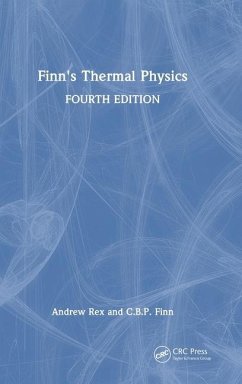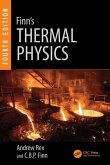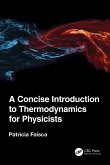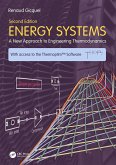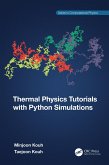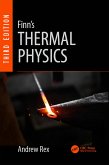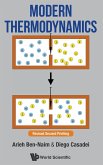This fully updated and expanded new edition continues to provide the most readable, concise, and easy-to-follow introduction to thermal physics.
While maintaining the style of the original work, the book now covers statistical mechanics and incorporates worked examples systematically throughout the text. It also covers more problems, and incorporates some essential updates, such as discussions on superconductivity, magnetism, Bose-Einstein condensation, and climate change.
Anyone who needs to acquire an intuitive understanding of thermodynamics from the first principles will find this third edition indispensable.
Selling Points
- Provides the most concise and accessible introduction to thermodynamics starting from first principles, with many more worked examples and problems.
- Incorporates statistical mechanics in two brand-new chapters.
- Systematically incorporates more worked examples after introducing a new concept to show what the results mean numerically.
- Continues to address the subtleties in a way unmatched by any other text, for topics such as the meaning of thermodynamic functions.
- Offers a significant update on areas such as superconductivity, magnetism, Bose-Einstein condensation, climate change, and physics of information.
Andrew Rex is a professor of physics at the University of Puget Sound in Tacoma, Washington. He earned a BA in physics at Illinois Wesleyan University in 1977 and a PhD in physics at the University of Virginia in 1982. At Virginia he worked under the direction of Bascom S. Deaver Jr on the development of new superconducting materials. After completing requirements for his PhD, he joined the faculty at Puget Sound. Dr Rex's primary research interest is in the foundations of the second law of thermodynamics. He has published research articles and, jointly with Harvey Leff, two comprehensive monographs on the subject of Maxwell's demon (1990, 2003). Dr Rex has coauthored several widely used textbooks-Modern Physics for Scientists and Engineers (1993, 2000, 2006, 2013, 2021), Integrated Physics and Calculus (2000), and Essential College Physics (2010, 2021)-and the popular science book Commonly Asked Questions in Physics, also published by Taylor & Francis/CRC Press.
While maintaining the style of the original work, the book now covers statistical mechanics and incorporates worked examples systematically throughout the text. It also covers more problems, and incorporates some essential updates, such as discussions on superconductivity, magnetism, Bose-Einstein condensation, and climate change.
Anyone who needs to acquire an intuitive understanding of thermodynamics from the first principles will find this third edition indispensable.
Selling Points
- Provides the most concise and accessible introduction to thermodynamics starting from first principles, with many more worked examples and problems.
- Incorporates statistical mechanics in two brand-new chapters.
- Systematically incorporates more worked examples after introducing a new concept to show what the results mean numerically.
- Continues to address the subtleties in a way unmatched by any other text, for topics such as the meaning of thermodynamic functions.
- Offers a significant update on areas such as superconductivity, magnetism, Bose-Einstein condensation, climate change, and physics of information.
Andrew Rex is a professor of physics at the University of Puget Sound in Tacoma, Washington. He earned a BA in physics at Illinois Wesleyan University in 1977 and a PhD in physics at the University of Virginia in 1982. At Virginia he worked under the direction of Bascom S. Deaver Jr on the development of new superconducting materials. After completing requirements for his PhD, he joined the faculty at Puget Sound. Dr Rex's primary research interest is in the foundations of the second law of thermodynamics. He has published research articles and, jointly with Harvey Leff, two comprehensive monographs on the subject of Maxwell's demon (1990, 2003). Dr Rex has coauthored several widely used textbooks-Modern Physics for Scientists and Engineers (1993, 2000, 2006, 2013, 2021), Integrated Physics and Calculus (2000), and Essential College Physics (2010, 2021)-and the popular science book Commonly Asked Questions in Physics, also published by Taylor & Francis/CRC Press.

